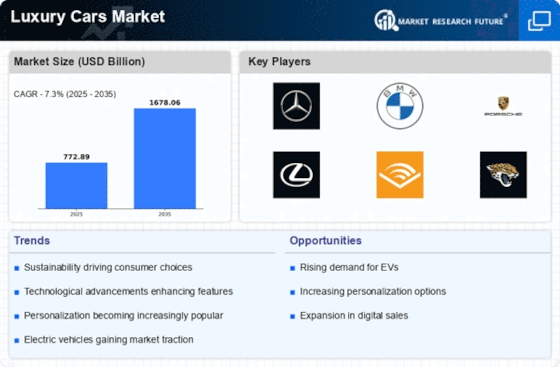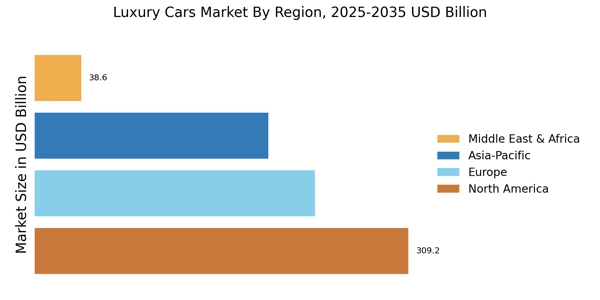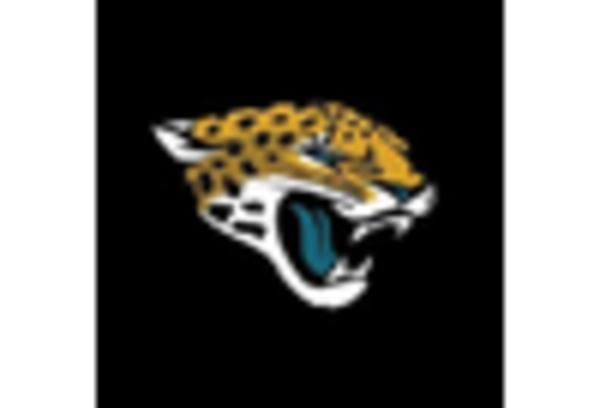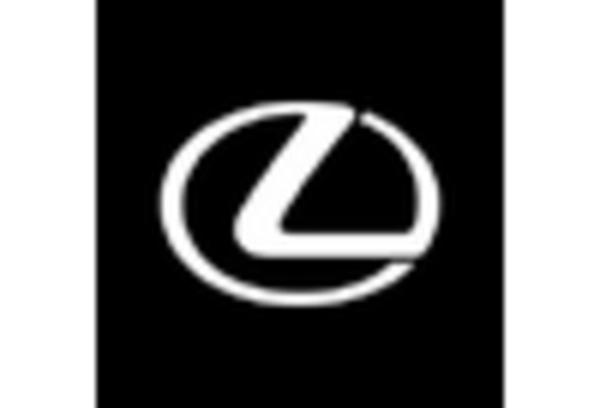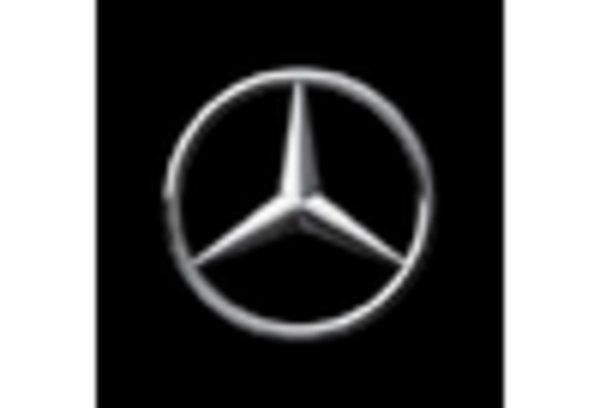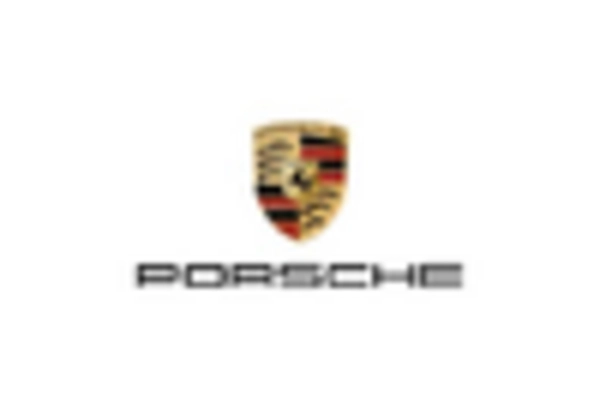Rising Disposable Incomes
The Luxury Cars Market appears to be significantly influenced by the increasing disposable incomes of consumers. As individuals experience higher earnings, their purchasing power expands, allowing them to invest in luxury vehicles. In many regions, the average disposable income has shown a steady upward trend, which correlates with a growing demand for high-end automobiles. This trend is particularly evident in emerging markets, where a burgeoning middle class is eager to embrace luxury brands. The Luxury Cars Market is likely to benefit from this demographic shift, as more consumers aspire to own premium vehicles, thus driving sales and market growth.
Global Urbanization Trends
Urbanization trends are having a profound impact on the Luxury Cars Market. As more individuals migrate to urban areas, the demand for luxury vehicles that offer convenience and status is likely to increase. Urban dwellers often seek vehicles that not only provide comfort but also reflect their lifestyle choices. The Luxury Cars Market is expected to adapt to these urbanization patterns by offering compact luxury models that cater to city living. Additionally, the rise of ride-sharing services may influence consumer behavior, prompting luxury brands to explore innovative ownership models that align with urban mobility needs.
Technological Advancements
Technological advancements play a pivotal role in shaping the Luxury Cars Market. Innovations such as electric vehicles, autonomous driving features, and advanced infotainment systems are becoming increasingly prevalent. The integration of cutting-edge technology not only enhances the driving experience but also aligns with consumer expectations for modern luxury. For instance, the market for electric luxury cars is projected to grow substantially, with sales expected to reach millions of units by 2026. This technological evolution is likely to attract tech-savvy consumers, thereby expanding the Luxury Cars Market and fostering competition among manufacturers.
Changing Consumer Preferences
Changing consumer preferences are reshaping the Luxury Cars Market in notable ways. Today's consumers are increasingly prioritizing sustainability and eco-friendliness in their purchasing decisions. As a result, luxury car manufacturers are adapting their offerings to include hybrid and electric models that appeal to environmentally conscious buyers. This shift is reflected in market data, indicating that sales of electric luxury vehicles have surged, accounting for a significant portion of overall luxury car sales. The Luxury Cars Market must continue to evolve in response to these preferences to remain competitive and relevant in a rapidly changing landscape.
Enhanced Marketing Strategies
Enhanced marketing strategies are becoming increasingly vital for the Luxury Cars Market. Manufacturers are leveraging digital platforms and social media to reach affluent consumers more effectively. Targeted advertising campaigns that highlight the exclusivity and prestige of luxury vehicles are likely to resonate with potential buyers. Furthermore, experiential marketing initiatives, such as exclusive test drive events and luxury lifestyle experiences, are gaining traction. These strategies not only elevate brand visibility but also foster a deeper connection with consumers. As competition intensifies, the Luxury Cars Market must continue to refine its marketing approaches to capture the attention of discerning buyers.


